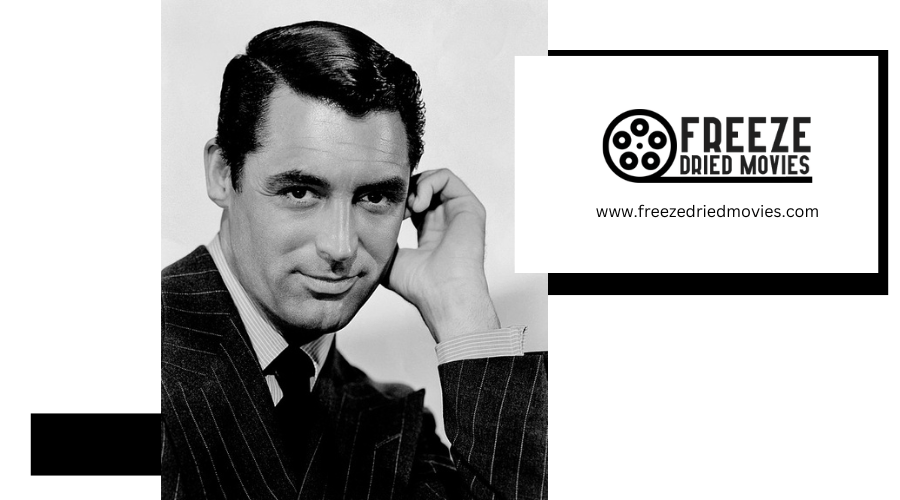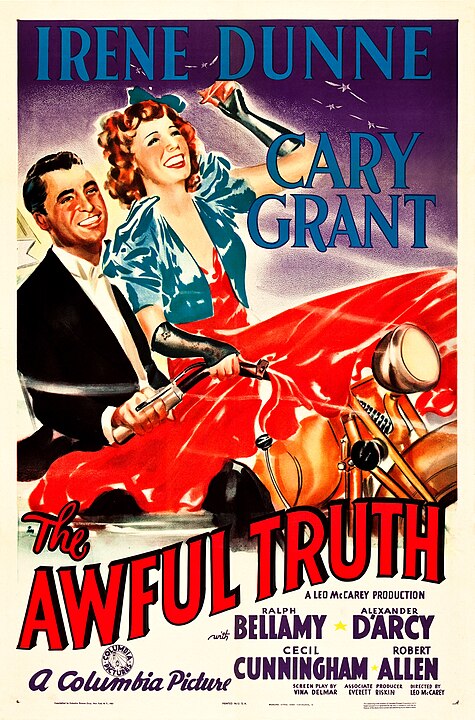Cary Grant is the quintessential icon of Hollywood’s Golden Age, whose charm and elegance remain unmatched. Born in 1904, Grant’s journey from Bristol to the bright lights of Hollywood is a demonstration of his enduring appeal and versatility as an actor. With roles in classics like ‘Bringing Up Baby’ and ‘His Girl Friday,’ he mastered the art of screwball comedy and romantic allure, making him a symbol of sophistication. Yet, beyond the silver screen, there’s an intricate story of a man who navigated the complexities of fame, personal life, and a rapidly evolving industry. Let’s peel back the layers of Cary Grant’s enduring legacy, revealing what truly made him the epitome of Hollywood’s Golden Age charm.
Key Takeaways
- Cary Grant’s rise to stardom began with standout roles in films like ‘The Awful Truth’ and ‘Bringing Up Baby’.
- Known for his versatility, Grant excelled in both screwball comedies and romantic dramas, defining Hollywood’s Golden Age.
- His collaborations with iconic directors and co-stars elevated his career, leading to classics like ‘To Catch a Thief’ and ‘Charade’.
- Ranked as the second greatest male star of the Golden Age by the American Film Institute, highlighting his enduring appeal and talent.
- Grant’s suave persona, impeccable comedic timing, and timeless style made him a symbol of charm and sophistication during Hollywood’s Golden Age.
Early Life and Education
Born in 1904 in Bristol, England, Cary Grant faced a tough childhood, yet his early start in performance with ‘The Penders’ set the stage for his future stardom. As Archie Leach, he honed his craft on the vaudeville circuit, mastering the art of entertainment that would later define his career. This foundation in performance was pivotal, as it laid the groundwork for his shift to the silver screen.
Making his way to Hollywood in the early 1930s, Grant’s charm and acting skills shone through in pre-code movies. It wasn’t long before he caught the eye of Paramount Pictures, which led to a breakthrough 5-year contract. By adopting the screen name Cary Grant and excelling in screwball comedies like ‘The Awful Truth,’ he became synonymous with the Golden Age of Hollywood.
Grant’s journey from Archie Leach, a boy from Bristol with a challenging start, to Cary Grant, a Hollywood legend, is a tribute to his resilience and talent. His early experiences on the vaudeville circuit were not just a phase but the foundation of a storied career that would captivate audiences for decades.
Vaudeville and Performing Career
You’ve seen him dazzle on the silver screen, but Cary Grant’s journey to Hollywood stardom began on the vaudeville stage. His early experiences with ‘The Penders’ and his breakout role in ‘Golden Dawn’ laid the groundwork for a legendary acting career. From acrobatic dances to iconic stage performances, Grant’s shift into acting showcases a story of resilience and charm that’s as enchanting as his films.
Early Vaudeville Beginnings
Diving into his early vaudeville beginnings, Cary Grant’s journey with ‘The Penders’ acrobatic dancers showcased his innate talent for entertainment and physical comedy. This period was pivotal, revealing his remarkable physicality and laying the groundwork for his undeniable charisma. Vaudeville wasn’t just a stepping stone; it was the forge in which Cary Grant, the icon, was tempered. His time on the vaudeville circuit honed his comedic timing, a skill that would become a hallmark of his later film career. Grant’s smooth shift from the physical comedy of vaudeville to the silver screen was no small feat. It was here, amidst the laughter and applause of vaudeville, that he crafted the foundation of the sophisticated, debonair persona that would captivate audiences worldwide.
Transition to Acting
After honing his skills in vaudeville with ‘The Penders’, Cary Grant made a smooth shift to acting in 1927, marking the start of his illustrious Hollywood career. He quickly grabbed the spotlight by signing a five-year contract with Paramount and choosing the stage name Cary Grant, a move that sealed his fate as a Hollywood legend. Known for his undeniable charm and prowess in pre-code films, Grant’s evolution from vaudeville to the silver screen laid the groundwork for a career that would forever symbolize the epitome of Hollywood’s Golden Age charm.
| Year | Milestone |
|---|---|
| 1927 | Cast in ‘Golden Dawn’ |
| 1931 | Signs with Paramount |
| 1932 | Adopts stage name Cary Grant |
| 1930s | Rises to stardom in pre-code films |
| Ongoing | Legacy as a versatile actor |
Iconic Stage Performances
His early ventures into stage performances showcased a budding talent keen to charm and entertain. In 1927, Grant’s significant breakthrough in the stage production of ‘Golden Dawn’ marked his shift into more notable roles, blending his vaudeville-honed skills with the demands of more sophisticated theatrical endeavors. This smooth progression from vaudeville to Hollywood not only highlighted his versatile acting capabilities but also solidified his status as a suave and charismatic leading man. Grant’s journey from stage to screen laid a robust foundation for an iconic on-screen persona that continues to enchant and inspire, cementing his legacy in the annals of cinematic history.
Hollywood Stardom: 1937–1945
You’re entering a golden era where Cary Grant’s journey to stardom unfolds, marked by unforgettable roles that still captivate us. His rise to fame, through classics like ‘The Awful Truth’, showcases his unparalleled versatility and charm. Amid the backdrop of the war era, Grant’s performances not only entertained but also brought a sense of hope and resilience to audiences worldwide.
Rise to Fame
Grant’s ascent to Hollywood stardom was catapulted by ‘The Awful Truth’ in 1937, marking him as a leading figure in the industry. Known for his magnetic presence in screwball comedies and romantic films, you’d see him shine alongside some of the most esteemed directors and actors of the time. His versatility didn’t just stop at comedy; it stretched into drama, bringing him critical acclaim and a fanbase that adored his every move. Films like ‘Bringing Up Baby,’ ‘His Girl Friday,’ and ‘Only Angels Have Wings’ aren’t just iconic films; they’re demonstrations of Grant’s incredible range and talent. During Hollywood’s Golden Age, from 1937 to 1945, your charisma, impeccable timing, and suave persona didn’t just leave a mark on the industry; they defined it.
Iconic Roles
Building on your rise to fame, your iconic roles between 1937 and 1945 cemented your status as a Hollywood legend. Starring in hits like ‘The Awful Truth’ and ‘Bringing Up Baby’, you became the quintessential leading man of the Golden Age, masterfully blending charm and wit in romantic films and screwball comedies. Your collaborations with top directors and actors not only showcased your impeccable timing but also your unparalleled acting range. The debonair demeanor you brought to every character made you an enduring symbol of Hollywood elegance. Films such as ‘His Girl Friday’ and ‘Only Angels Have Wings’ continue to delight audiences worldwide, proving that your legacy as a beacon of the Golden Age’s charm is eternal.
War Era Impact
Journeying through the tumultuous war era, your stardom in Hollywood only intensified, marked by unforgettable performances in films like ‘The Awful Truth’ and ‘Bringing Up Baby’. Your knack for screwball comedies and romantic tales showcased your unmatched versatility. Collaborating with top-tier directors and actors, you earned widespread acclaim, particularly for your roles in ‘His Girl Friday’ and ‘Only Angels Have Wings’. Your impeccable timing and boundless charisma didn’t just win over audiences; they made you a beloved figure across Hollywood. Even amid the challenges of those years, you solidified your legacy, proving your mettle as a true icon of the Golden Age. Your contributions during the 1930s and 1940s remain celebrated, underscoring your enduring allure and significance in cinema history.
Film Resurgence: 1955–1966
Between 1955 and 1966, Cary Grant dazzled audiences anew, starring in films that highlighted his unmatched charm and talent. This period marked a significant resurgence in his career, firmly establishing him as a leading man and a Hollywood legend. Through collaborations with top directors and alongside renowned co-stars, Grant continued to captivate with his suave persona and impeccable acting skills. His roles during these years showcased his versatility and further cemented his status in the annals of cinema history.
Key highlights of this era include:
- Collaborations with iconic directors and co-stars, enhancing the quality and appeal of his films.
- Starring roles in ‘To Catch a Thief’ (1955) and ‘Charade’ (1963), films that are now considered classics, demonstrating his talent and timeless charisma.
- Solidifying his status as a Hollywood legend, with performances that endeared him to audiences worldwide and underscored his place as one of the greatest actors of Hollywood’s Golden Age.
Grant’s contributions during this phase not only enriched the film industry but also left a lasting legacy that continues to inspire and entertain.
Later Years
In 1966, Cary Grant chose to retire, maneuvering gracefully from his iconic film roles to successful business ventures and investments. After a glittering career that spanned over three decades, Grant’s final bow on the silver screen came with ‘Walk Don’t Run,’ a fitting end to an era of unmatched charm and elegance. Despite stepping away from the limelight, Grant didn’t slow down. He delved into the world of business with the same zest he brought to his films, showcasing an acumen for investments that few knew he possessed.
Grant’s retirement wasn’t just a departure from acting; it was a declaration of personal independence. Freed from the confines of the studio system, he thrived on his autonomy, managing his post-Hollywood life with the creativity and freedom that had characterized his career. This period underscored Grant’s multifaceted talents, proving that his brilliance wasn’t confined to acting alone.
Even as he moved away from the film industry, Grant’s legacy as a Hollywood icon only grew stronger. He remained a symbol of the Golden Age’s charm, his name synonymous with sophistication and style. His later years reflected a life well-lived, embodying the grace and personal independence he valued so highly.
Business Interests
Cary Grant’s keen business acumen wasn’t just a rumor; it was a well-documented facet of his illustrious career, positioning him among Hollywood’s most shrewd investors. With advice from Randolph Scott, Grant made strategic moves that not only fortified his wealth but also cemented his status as a savvy businessman.
- Grant’s investments spanned various sectors, including the stock market, real estate, and significant positions in leading companies.
- He co-owned a hotel in Acapulco, showcasing his knack for identifying lucrative opportunities beyond the silver screen.
- By negotiating a share of gross revenue for his films, Grant revolutionized how actors managed their earnings, setting a new standard in the film industry.
Cary Grant’s approach to business was as charismatic and sophisticated as his on-screen personas. His ventures into the stock market, real estate, and corporate boardrooms were not mere side projects; they were calculated moves that showcased his profound understanding of business and investment. Grant’s legacy, therefore, is not just that of a film icon but also a testament to his exceptional ability to navigate the complex world of Hollywood and beyond with unparalleled finesse.
Personal Life
Grant’s love life, marked by five marriages, reveals the depth of his romantic adventures and the complexities hidden behind his charming public facade. Your journey through the heart of Hollywood’s golden age isn’t complete without delving into the personal life of Cary Grant, a man whose relationships with women were as alluring as his performances on screen. From his close friendship with Audrey Hepburn to his rumored connection with Randolph Scott, Grant’s life was a tapestry of meaningful relationships and speculative whispers. Yet, it’s his affairs and marriages that truly underscore the intricacies of his romantic life.
Despite the turbulence, Grant’s charisma and talent never wavered, making him a lasting icon in the film industry. His ability to navigate the highs and lows of love, while maintaining a sterling career, speaks volumes about his character. Each marriage, whether it ended in heartbreak or mutual understanding, added another layer to the enigmatic persona of Cary Grant. Remembered not just for his affairs and relationships, Grant’s legacy as one of Hollywood’s greatest leading men endures, proving that even amidst personal struggles, true star quality shines through.
Screen Persona
A true embodiment of Hollywood’s Golden Age, his screen persona captivated with unmatched style, charm, and sophistication. Cary Grant’s presence on the silver screen as the quintessential leading man was nothing short of magnetic. His debonair demeanor, coupled with an effortlessly elegant attire, left audiences spellbound and solidified his position as a beloved icon. Grant wasn’t just about looks; his on-screen persona was a perfect blend of wit, humor, and intelligence, making him relatable and timeless.
- His suave mannerisms and impeccable comedic timing set a new standard for charm in classic cinema.
- Known for a charismatic presence that transcended generations, Grant’s style and sophistication became his trademark.
- His ability to deliver dialogue with a unique blend of suaveness and wit made him the epitome of the Golden Age leading man.
Grant’s screen persona remains iconic, symbolizing the pinnacle of Hollywood glamour and charm. He continues to inspire actors and captivate audiences, proving that true class never goes out of style. His legacy as the ultimate representation of Golden Age charm endures, making him an everlasting figure in the pantheon of cinema greats.
Legacy
Building on his enchanting screen persona, Cary Grant’s legacy as a Hollywood icon endures, influencing countless actors and charming audiences worldwide. Ranked by the American Film Institute as the second greatest male star of the Golden Age of Hollywood, his suave persona and impeccable acting range have set a standard that remains unmatched. Grant is celebrated not just as an icon of Hollywood but as a beacon of timeless style and charm, qualities that have solidified his place in the hearts of film lovers across generations.
His movies, a demonstration of his talent, continue to captivate and inspire. Audiences around the globe still find themselves drawn to his performances, proving that his appeal transcends time. Known for his elegance, Grant’s legacy as a leading man in Hollywood is unparalleled. He has left an indelible mark on the industry, embodying what it means to be a true star.
Cary Grant’s timeless presence on screen has cemented his status as one of the most important actors in cinema history. His influence is a guiding light for aspiring actors, showcasing the power of charisma, talent, and dedication. Grant’s legacy, characterized by his iconic style and undeniable charm, continues to shine brightly, reminding us all of the golden age of Hollywood’s unmatched allure.
Frequently Asked Questions
What Did Cary Grant Pass Away From?
He passed away from a cerebral hemorrhage, leading to a fatal stroke. This happened after he was hospitalized for severe headaches and nausea.
Did Cary Grant Ever See His Mother?
Yes, you’ll be relieved to know that Cary Grant did reunite with his mother after believing she had passed away. They reconnected years later, correcting a misunderstanding that had kept them apart for decades.
Why Was Cary Grant in Davenport Iowa When He Died?
He was there for a scheduled appearance at the Adler Theatre but fell ill, leading to his hospitalization and subsequent passing in the city.
What Did Eva Marie Saint Think of Cary Grant?
You’d find Eva Marie Saint thought highly of Cary Grant, praising his gentleness, charm, and professionalism on the ‘North by Northwest’ set. She admired his humor, support, and the comfortable atmosphere he created.
Conclusion
You’ve journeyed through Cary Grant’s remarkable life, from his humble beginnings in Bristol to becoming a Hollywood legend. His evolution from vaudeville to silver-screen icon showcased an unparalleled versatility, making every role unforgettable. Beyond the camera, Grant’s savvy business acumen and intriguing personal life added layers to his enduring allure. His legacy, defined by charm and wit, continues to inspire. Cary Grant truly remains the epitome of Hollywood’s Golden Age charm, an everlasting symbol of style and sophistication.



